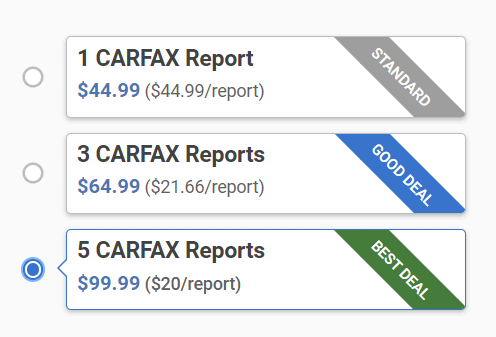Not being sure about your car’s real worth is an issue almost everyone faces. Many buyers and sellers struggle with pricing because traditional tools ignore a car’s real story. Two cars might look the same on paper, but one met with an accident and the other was gently used by its owner. Therefore, there is a huge difference between the two. Therefore, it is important to Carfax History based value.
To make it easier for you, this article discusses the Carfax history-based value to price used cars based on their actual history. So, give it a read to understand everything about a car in detail before bringing it home.
What Is Carfax History-Based Value and Why Is It Important?
The Carfax history-based value is a pricing tool that uses a car’s actual history to find its value. In 2024, more than 2.1 million cars had fake mileage to appear more valuable. A vehicle’s report contains the following things about it so give them a read before purchasing:
- Overview of the Vehicle
It includes a quick summary of the current status of your vehicle before going into detail. In this section, you will find the model year, name, vehicle identification number (VIN), make, and last reported odometer reading. Moreover, it includes service history records recorded and different types of its previous owners. You will only find this information and related to accidents if it was reported to Carfax.
- Accident and Damage History
If the vehicle were in an accident, you would find details related to it at the top of the report. It is because a used vehicle’s value decreases by 10 to 50% after an accident, depending on whether the damage was severe, moderate, or minor. The accident summary also contains details such as the severity and location of the damage. Buyers often pay about $500 more when they buy a used car with a hidden accident history.
- Ownership History
This section tells about the usage of the vehicle and how many miles per year the owner drove it. You need this information to learn about the wear and tear put on the car. 12,000 to 15,000 is the average miles yearly, and lower than this means the engine is in good shape. If it is higher, that indicates that the engine is in a worse position.
- Title History
In the title history section, you get to know if there were any issues with the rebuilt, junk or salvage. It also provides you with details such as potential odometer issues, and the Carfax itself guarantees these things in the vehicle history report.
How to Use Carfax Valuation for Buying or Selling a Car?
As discussed, the Carfax history-based value, here’s how to use the valuation for buying or selling a car:
For Buyers
If you’re buying a used car, the CARFAX vehicle value is a must-have tool. It shows if the price the seller asks is fair or too high and if the car costs more than its Carfax value, or if it tries to lower the price. The report also shows past problems like accidents or flood damage, which you might not notice just by looking. Use this information to make a smart choice or walk away from it.
For Sellers
If you’re selling a used car, showing a clean Carfax report builds trust fast. Buyers feel safer when they see a full and honest history. You can ask for a better price and sell faster if the report shows good care and no major damage. Ensure to maintain the Carfax details in your ad and keep a copy ready for your buyers.
Where to Find Budget-Friendly CARFAX Reports
Want a reliable CARFAX vehicle value report without paying full price? You can get a full VIN check for just $5.99, within 30 seconds at Cheap Carfax. These reports include accident history, title status, mileage records, ownership details, and more and deliver them straight to your email in only 30 seconds. Whether you’re buying or selling, this tool gives you the facts you need for better car pricing accuracy without breaking the bank.
Tips to Improve a Car’s History-Based Value
Having discussed where to find budget-friendly Carfax reports, here are the tips that you can put to use for improving your car’s history-based value:
- Keep All Maintenance Records
You can save the receipts every time you visit a mechanic. These papers are to prove that you took good care of your car. Moreover, when it’s time to sell your car, the buyers will trust your vehicle more and ultimately help you to increase your Carfax car value.
- Fix Small Damages Promptly
Don’t ignore scratches, dents, or cracked lights. This is also a way to keep your car in good shape and show the prospects that you maintain your car well over time. It also prevents the smaller problems from becoming bigger ones.
- Avoid Frequent Ownership Changes
Try to keep your car for a few years before selling because this helps you get a better price. However, frequent changes in ownership can lower trust and reduce the value of your vehicle.
- Address Open Recalls
Check for any open recalls on your vehicle and get them fixed for free. Taking action on recalls shows you’re a responsible owner, which helps to improve car pricing accuracy.
- Keep the Interior and Exterior Clean
Clean your car regularly and avoid smoking or eating inside. A fresh and clean car creates a better first impression on the prospects, and buyers are more likely to pay a higher price for a neat vehicle.
Conclusion
To summarize, this article discussed the Carfax history-based value and its importance. It also mentioned a tool for a cheap Carfax History based value report, that you can use for getting a full VIN check for just $5.99. In the report, you will find details such as ownership details, accident history, title status, and mileage records. A report is important both for buyers and sellers, as it shows no accident, so the owner can demand a higher price.




